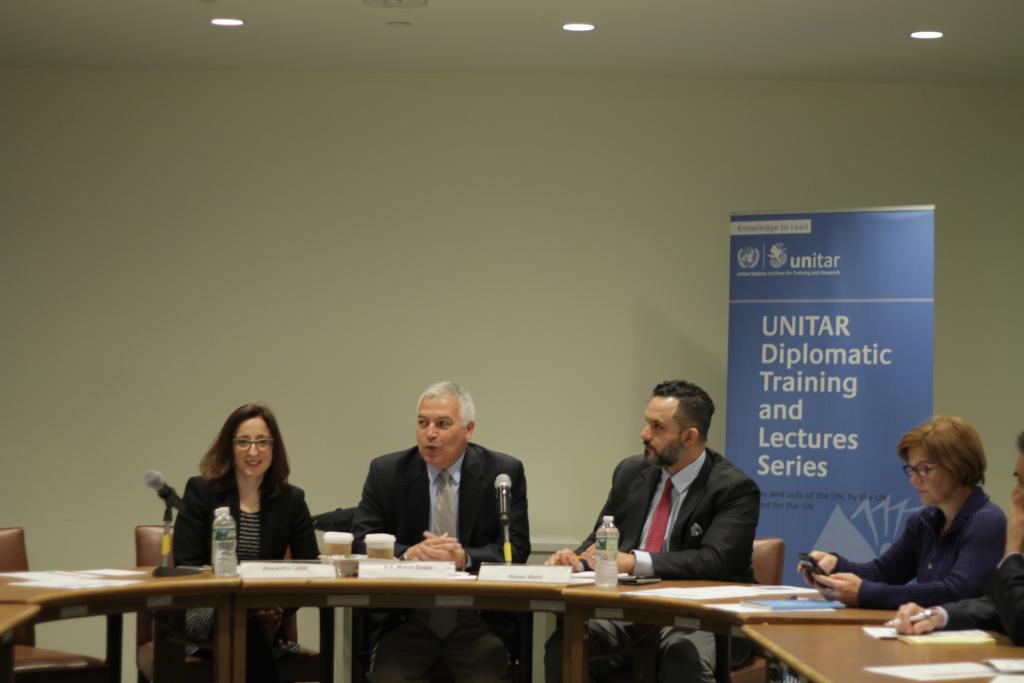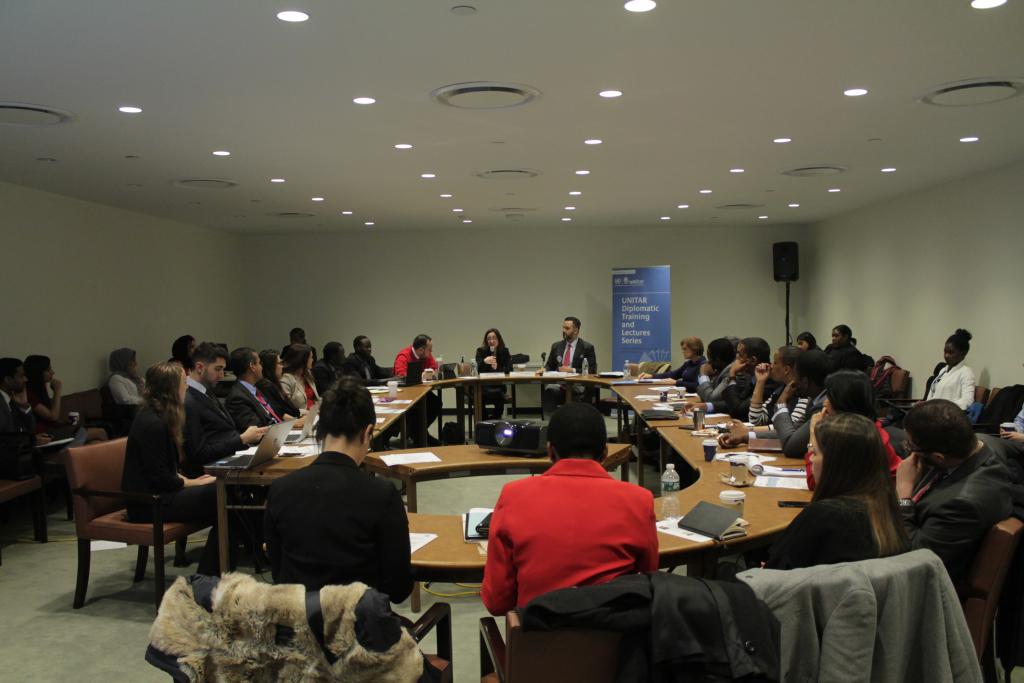UNITAR Organizes Leadership Building Workshop with Columbia Law School Professors
 9 March 2017, New York, USA- United Nations Institute for Training and Research (UNITAR) organized a workshop titled “Building Capacity for Effective Leadership” taught by two Columbia Law School Professors. The workshop began with a few opening remarks by Mr. Marco Suazo who thanked Professor Alex Carter and Shawn Watts for all their hard work in preparation for the workshop. He gave participants a brief summary of what to expect from the workshop and informed them about UNITAR’s new mobile app and e-learning course in collaboration with the SDGFund, encouraging them to use both and provide feedback.
9 March 2017, New York, USA- United Nations Institute for Training and Research (UNITAR) organized a workshop titled “Building Capacity for Effective Leadership” taught by two Columbia Law School Professors. The workshop began with a few opening remarks by Mr. Marco Suazo who thanked Professor Alex Carter and Shawn Watts for all their hard work in preparation for the workshop. He gave participants a brief summary of what to expect from the workshop and informed them about UNITAR’s new mobile app and e-learning course in collaboration with the SDGFund, encouraging them to use both and provide feedback.
Professor Alex Carter began the workshop by thanking the UNITAR team and the returning participants highlighting that their engagement aids in creating a true Columbia Law School atmosphere, she and Professor Watts explained the goals of the workshop. They explained that the workshop was not solely to link the SDGs with capacity building but to also build skillsets that increase leadership potential and to expand the concept of what leadership is, while helping participants identify and build their own unique leadership styles.
 The participants were then asked to separate into groups of 4, and play a silent card game with different people in each round. The game had several hidden lessons. The first lesson was to teach that while leading different types of people good communication is essential. The game also alerted participants to the importance of adapting their leadership styles according to the different environments they were in.
The participants were then asked to separate into groups of 4, and play a silent card game with different people in each round. The game had several hidden lessons. The first lesson was to teach that while leading different types of people good communication is essential. The game also alerted participants to the importance of adapting their leadership styles according to the different environments they were in.
The workshop then focused on effective leadership and the Sustainable Development Goals, highlighting SDG’s 5 and 10 (Gender Equality and Reduced Inequalities). Participants were encouraged to view the SDGs as a group effort and in doing so, they were taught to recognize that when leadership is vested in just one person, the achievement of broad-based participation by a community or society is limited. This encouraged participants to view their best resources as the people around them.
In the next session, the professors discussed traditional views of leadership and encouraged participants to converse about what constituted a good leader in their view. Participants were then asked to share how traditional views of leadership present barriers to full community participation in the decision-making process. The participants were presented with different case studies that focused on the top-down and bottom-up leadership styles. After this, the participants were broken into groups and asked to discuss their findings on their merits and drawbacks of both leadership styles.
 The Japanese concepts of Jidoka (self-regulation) and Jishuken (integrated problem-solving) were held up as examples to the participants as good ways to address issues as leaders. Professor Watts then went on to discuss individual leadership styles which include: laissez-faire style, autocratic style, transactional style, participative style and transformational style. Participants were then given five minutes to reflect on their individual leadership styles and discern which areas of leadership they struggled with.
The Japanese concepts of Jidoka (self-regulation) and Jishuken (integrated problem-solving) were held up as examples to the participants as good ways to address issues as leaders. Professor Watts then went on to discuss individual leadership styles which include: laissez-faire style, autocratic style, transactional style, participative style and transformational style. Participants were then given five minutes to reflect on their individual leadership styles and discern which areas of leadership they struggled with.
Participants engaged in a final exercise, which was designed to help them reconcile different leadership styles in an issue of conflict by presenting several complicated scenarios and having to decide which leadership style best suited each situation.
The workshop ended with Mr. Suazo thanking the participants for their very lively input. He informed those present about future UNITAR events that might be of interest.
Photos: Participants and facilitators of the workshop

